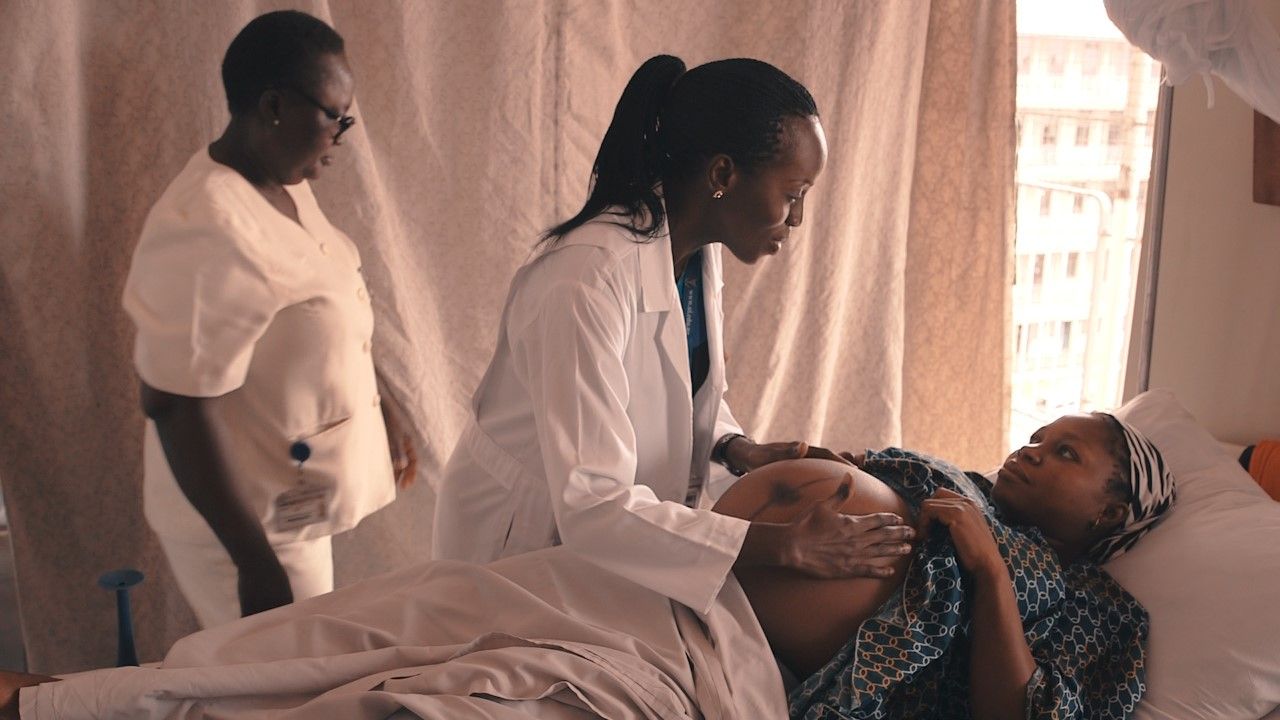
A worldwide trial has shown that a cheap drug can help stop mothers bleeding to death after birth, the biggest cause of maternal mortality in the world.
The drug, called tranexamic acid, is already available and costs less than $3 per injection. The trials are the first time it has been used to treat severe bleeding after birth and the results were published in The Lancet journal on Wednesday.
Postpartum hemorrhage (PPH)—when the mother loses more than 500 milliliters of blood in the first 24 hours after birth—is the leading cause of maternal mortality worldwide, accounting for more than a third of maternal deaths, although these are concentrated in developing countries.
Tranexamic acid helps to stop blood clots breaking down, thereby cutting the amount of blood lost by mothers who suffer from PPH and reducing the risk of death. The drug was shown to cut death due to bleeding by 31 percent if administered within three hours; it also reduced the need for urgent surgery to control the bleeding—which can involve the removal of a woman's uterus and leave her unable to have more children—by 36 percent.
The trials included 20,000 women in 193 hospitals across 21 countries; the highest number of women involved was in Nigeria, where 5,711 women at 52 hospitals took part in the trials. Nigeria has one of the highest rates of maternal mortality in the world: 814 mothers die per 100,000 live births, according to 2015 data from the World Bank. A 2013 Nigerian government survey put the figure lower at 576 deaths per 100,000 live births. Postpartum hemorrhage is the main cause of death among mothers in Nigeria.
Professor Bukola Fawole, the coordinator of the trials in Nigeria, says that maternal mortality figures in the West African country are often based on estimates and that the current figures are probably an underestimate.
"This development will lead to thousands of women receiving better care and different outcomes," Fawole, an obstetrician at the University College Hospital in Ibadan in southwest Nigeria, tells Newsweek. "Thousands of lives will be saved, it will make a major impact on our side of the world, because this treatment will be available to women in very remote places as long as there is someone available who is sufficiently skilled to administer an intravenous injection."
Read more: A Nigerian startup is tackling the desperate shortage of blood donations in Lagos
The project was coordinated by the London School of Hygiene & Tropical Medicine (LSHTM) and was entitled The WOMAN (World Maternal Antifibrinolytic) Trial. Fibrinolysis is the process of blood clots breaking down; antifibrinolytics are drugs that inhibit the breakdown. It was funded by The Wellcome Trust and the U.K. Department of Health, as well as the Bill & Melinda Gates Foundation.
When women in the trials were given tranexamic acid within three hours of birth, 89 died from bleeding compared to 127 given a placebo. No significant side effects resulted from the use of tranexamic acid.
"It's safe, affordable and easy to administer, and we hope that doctors will use it as early as possible following the onset of severe bleeding after childbirth," said Haleema Shakur of the LSHTM and the project director.
Tranexamic acid was invented in the 1960s by a Japanese husband and wife team, scientists Shosuke and Utako Okamoto. The pair attempted to convince local clinicians to use the drug to treat postpartum bleeding, but failed to do so and it was used as a treatment for heavy periods. While Shosuke had died before the trial, Utako died aged 98 just after the 20,000th and final patient was enrolled in 2016, according to the BBC.
In Nigeria, Fawole says that the trial's administrators will now be working with the federal government to ensure that the drug can be made widely available in pharmacies and healthcare centers. "It's going to be immediate, we want to devise plans to mobilize the healthcare system so that we might have access to this lifesaving drug," says Fawole.
Current guidelines from the World Health Organization recommend the use of tranexamic acid only if uterotonics—contraction-inducing drugs—fail to control the bleeding, or if it is thought to be caused by trauma.
Uncommon Knowledge
Newsweek is committed to challenging conventional wisdom and finding connections in the search for common ground.
Newsweek is committed to challenging conventional wisdom and finding connections in the search for common ground.
About the writer
Conor is a staff writer for Newsweek covering Africa, with a focus on Nigeria, security and conflict.
To read how Newsweek uses AI as a newsroom tool, Click here.








